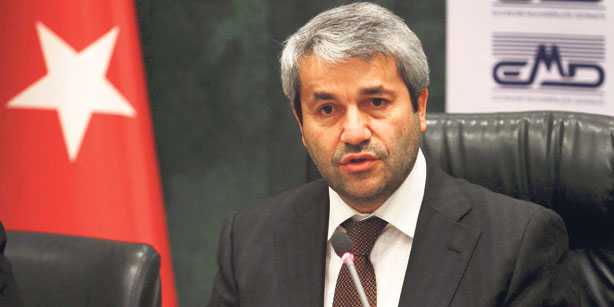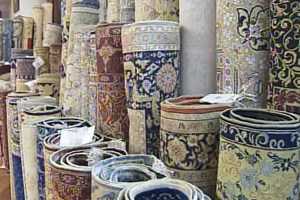Turkey put its imprint as one of the most influential countries not only on 2010, but on the first decade of the third millennium. At the start of the new decade, too, Turkey’s geopolitical position, rich historical heritage, cultural depth, well-educated young population, ever-strengthening democracy, growing economy, and constructive foreign policy make it an indispensable country in a world transformed by rapid globalisation.
By making use of all of its assets, Turkey is contributing to regional stability and peace, and working towards a global order based on justice, equality and transparency. As an emerging power, Turkey will continue to realise its own potential and simultaneously contribute to global peace.
The chaotic conditions of the post-Cold War world have made civil wars, occupations, nuclear armament, and human trafficking chronic problems. While globalisation offers new opportunities, it also causes new global problems and deepens the inequalities embedded in the world order. It is no longer possible to sustain the current world order, which, based as it is on a skewed notion of centre-periphery relations, merely produces injustice and inequality.
Turkey seeks to contribute to regional and global peace by facilitating democratic reforms domestically and implementing a principled foreign policy. As a Nato member, Turkey aims to become a full member of the European Union and establish cordial relations with all of its southern and eastern neighbours. Turkey’s posture — looking both at the East and the West — is neither paradoxical nor inconsistent. On the contrary, Turkey’s multidimensional geopolitical position is an asset for the region.
There are few countries that can play such a critical role. Turkey constitutes a new synthesis because of its ability to link such diverse qualities and backgrounds. Turkey is thus capable of overcoming the dichotomies of East-West, Europe-Middle East and North-South.
Indeed, this capacity is essential because we need to leave behind the Manichean disagreements, conflicts, and fears of the Cold War era. Those who see the world through those old, fearful lenses have difficulty in understanding Turkey’s rising profile and dynamism. But the realities of the 21st century necessitate a multi-dimensional and inclusive political perspective.
Acting on these principles, Turkey is following a proactive foreign policy, stretching from the Balkans to the Middle East and the Caucasus. This geography is Turkey’s natural historical and cultural hinterland. Turkey’s cultural and historical links with the peoples of these regions are deep and conducive to regional peace.
Turkey cannot remain indifferent to this geography, for it stands at the centre of it. History clearly shows that it is impossible to establish and sustain global peace without ensuring peace and stability in the Balkans and the Middle East. Turkey is following a constructive and inclusive policy for these regions, which are marked by remarkable models of cohabitation, science, arts, culture and civilisation.
Owing to our recent efforts, the wounds of the Bosnian war are being healed, facilitating peace and stability among Balkan peoples. Turkey’s efforts are also helping prevent wars in the Middle East, and our intense efforts have helped keep a diplomatic track open on the Iranian nuclear issue.
Moreover, we are helping to facilitate political stability in Iraq and helping the Nato mission in Afghanistan. And, of paramount importance, Turkey is making enormous efforts to help establish an independent and sustainable Palestinian state — efforts that are appreciated by Turkey’s western and eastern friends alike.
Today, Turkey is following a policy that represents a sense of justice in the Middle East, and is working towards the removal of artificial borders and walls among the region’s peoples. We desire to live in a region where the dignity of every person is respected. That is why we have objected to Israel’s aggression in and blockade of Gaza, and will continue to do so.
We know that it is not possible to attain global peace unless we establish sustainable peace in the Middle East, which requires resolving the Palestinian question. Therefore, we urge Israel and all other countries involved to follow constructive and peaceful policies.
Motivated by these principles, Spanish Prime Minister José Luis Rodríguez Zapatero and I showed through our “Alliance of Civilizations Initiative” in 2004 that cultural, historic and religious differences are no reason for conflict. The basis for our approach to humanity is the following principle of the famous Turkish poet Yunus Emre: “We love and respect the created because of the Creator.”
As a result, we stand firmly opposed to discrimination against any society, religion, sect, culture, or country. I consider anti-Semitism, Islamophobia and prejudice against Christianity crimes against humanity, whose common values and ethical rules oblige us to confront and reject all forms of discrimination.
Besides its cultural, historic and diplomatic values, Turkey’s vibrant economy has become a source of stability and welfare. When my party took office in 2002, the Turkish economy totalled around $250 billion. Today, Turkey’s annual GDP has reached $800 billion, making it Europe’s sixth-largest economy and the 17th largest in the world. It has also been one of the least impacted by the global economic crisis, with growing foreign trade, a strong banking system and diverse and prospering small- and medium-size enterprises. Thus, the Turkish economy returned to its pre-crisis levels in 2010.
All of these qualities have transformed Turkey into an attractive place for business, media, artists, diplomats, students and non-governmental organisations from around the world. Turkey’s ever-increasing soft power is becoming one of its most significant traits, which we will continue to use to enhance regional and global peace.
The impact of globalisation has brought about a rebalancing of power, but the demand for justice, transparency, and legitimacy remains constant. The global problems of our times necessitate cooperation, political will and sacrifice. That is why we are following a proactive policy in multilateral institutions to facilitate an equitable sharing of our world’s resources.
Turkey will continue to work toward a just and equitable global order in 2011 and beyond. This is a responsibility emanating from our history, geography and the universal values that we hold.
The author is the prime minister of the Republic of Turkey
© Project Syndicate, 2010
www.project-syndicate.org





